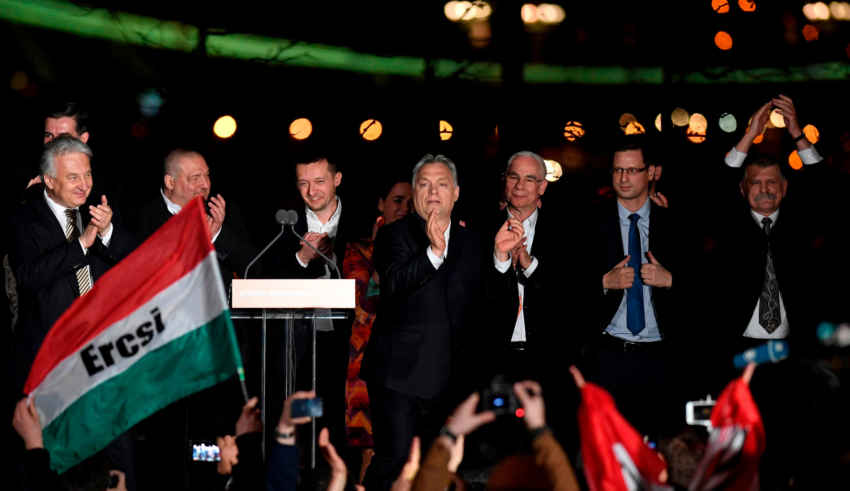
The Hungarian anti-democratic drift set in motion by Viktor Orbán seems to indicate that, with a high probability, the next elections in Hungary will not be free and fair. This concern is confirmed by calls from 40 Hungarian NGOs and 70 MEPs for a full-scale election observation mission by the OSCE’s Office for Democratic Institutions and Human Rights (ODIHR), due to the high probability that the elections will not be held to the highest democratic standards. Moreover, the 2018 ODIHR mission already showed gaps in the electoral system, and NGOs claim that the situation four years later is much worse (Ellena, 2022; Makszimos,2022).
Measures that pose a risk to free elections include changes to the electoral law to favor already elected officials, arbitrary restrictions on freedom of expression and assembly, or new registration rules that facilitate the registration of fictitious addresses, which could be used to increase voter turnout in contested regions. Moreover, even if democratic standards are met during voting, the starting and competition conditions are very unequal, with the ruling Fidesz party’s media dominance complete, and much higher campaign spending from public coffers than the rest of the competitors (Abril, 2022).
What should the EU do about it?
If this were to happen, it would be a serious attack on EU values, although the response would be limited. The EU does not have an expulsion procedure within its legislative system, and even if it did exist, it would probably not be used, as it would call into question the European project, which has been affected by Brexit. On the other hand, the EU could activate article 7 of the TEU against Hungary, as it considers that the country has violated basic values, and implies sanctions such as the loss of voting rights in the Council. However, it is unlikely to proliferate as it requires unanimity of all member states – with the exception of the country involved – and other allied members, such as Poland, could block it (Europa Press, 2021).
The only tool to deal with the situation would be economic sanctions or the withdrawal of funds, as is happening with the postponement of the approval of the Recovery Plan. While some of the money flow could be withheld, there are automatic transfers that they would continue to receive. The Orbán government receives a large amount of EU funds, and this would put a strain on the Hungarian economy, which would face difficulties in meeting payments. Therefore, more than a few have considered the possibility of Hungary invoking Article 50 of the TEU, but the economic dependence is too great and politically, the EU is profitable for Orbán, as he has an easily identifiable enemy to attack and blame.
The lack of freedom and justice in an election on EU territory would be an unprecedented event. All indications are that EU measures will remain in place, without major changes, with the serious risk that, if no red lines are drawn against these actions, this will damage the EU’s credibility in the eyes of other member states and the rest of the international community.
Literature
- Abril, G. (20/01/2022) “Un grupo de eurodiputados reclama observadores de la OSCE en las elecciones de Hungría”. El País. Available at: https://elpais.com/internacional/2022-01-20/un-grupo-de-eurodiputados-reclama-observadores-de-la-osce-en-las-elecciones-de-hungria.html
- Ellena, S. (20/01/2022)”MEPs call for full-scale election observation in Hungary”. Euroactiv. Available at: https://www.euractiv.com/section/politics/short_news/meps-call-for-full-scale-election-observation-in-hungary/
- EuropaPress (02/09/2021) “¿Puede la UE expulsar a Hungría?. Available at: https://www.europapress.es/verificaciones/noticia-puede-ue-expulsar-hungria-20210902164304.html
- Makszimos, V. (14/01/2022) “Civil society demands fully-fledged international mission for Hungarian elections”.Euroactiv. Available at: https://www.euractiv.com/section/politics/short_news/civil-society-demands-fully-fledged-international-mission-for-hungarian-elections/
By The European Institute for International Law and International Relations.














